CLIMATE change and environmental degradation are taking place at a fast pace, threatening the well-being of Earth. Scientists say that climate-induced events are happening at shorter intervals than ever before in history. The result is that they are posing a threat to our survival on the planet. As we observe World Soil Day on December 5th, it’s crucial to recognize that healthy soil is fundamental to addressing these climate challenges. From urgently reducing greenhouse gas emissions to building resilience and adapting to the inevitable effects of climate change, plans were discussed and there was also agreement on some. Yet soil—the living foundation beneath our feet—remains overlooked despite its critical role in carbon storage, food production, and climate regulation.
But we have a long way to go on the commitments to finance action to avert climate change at a fast pace in developing countries. Established by the United Nations in 2014, World Soil Day raises awareness about the critical importance of soil health and advocates for sustainable soil management. This year’s World Soil Day theme emphasizes “Caring for Soils: Measure, Monitor, Manage”—recognizing that what we measure, we can manage.
Away from all the action at the policy level, NGOs have been stepping up efforts to bring about change on the ground. They are doing this by engaging and collaborating with the people who matter the most. Ordinary people are also pitching in through what is called environmental crowdfunding. In recent years, crowdfunding for nonprofits working for the environment has grown in popularity. Individuals, NGOs and others are increasingly adopting this effective option to raise funds.
Government agencies formulate public policy regarding climate change, greenhouse gas emissions, pollution and clean water. But by leveraging the power of crowdfunding, more and more nonprofit organisations are addressing issues of soil preservation and protecting endangered species. These organisations support sustainable agriculture and encourage the conservation of the environment. This takes place through various activities such as community planting, rainwater harvesting and others.
Online crowdfunding for nonprofits that are dedicated to the environment has proven to be one of the most helpful solutions. NGOs raise funds to tide over financial hurdles that hinder the progress of interventions to fight the climate crisis facing the planet. Give.do, India’s largest crowdfunding platform, hosts several fundraisers and campaigns for NGOs committed to combating climate change.
SankalpTaru Foundation is an e-NGO, or an IT-enabled NGO, working across the country to protect and conserve the environment. To arrest the pace of climate change, it plants trees for the people and by the people. It uses GPS tagging and various other innovative technologies. SankalpTaru runs plantation drives on a digital platform, making it easier for volunteers to track their planted trees. It also tracks the progress of plantation drives. This has many proven benefits, ranging from the power to tackle pollution to strengthening farmers’ livelihoods.
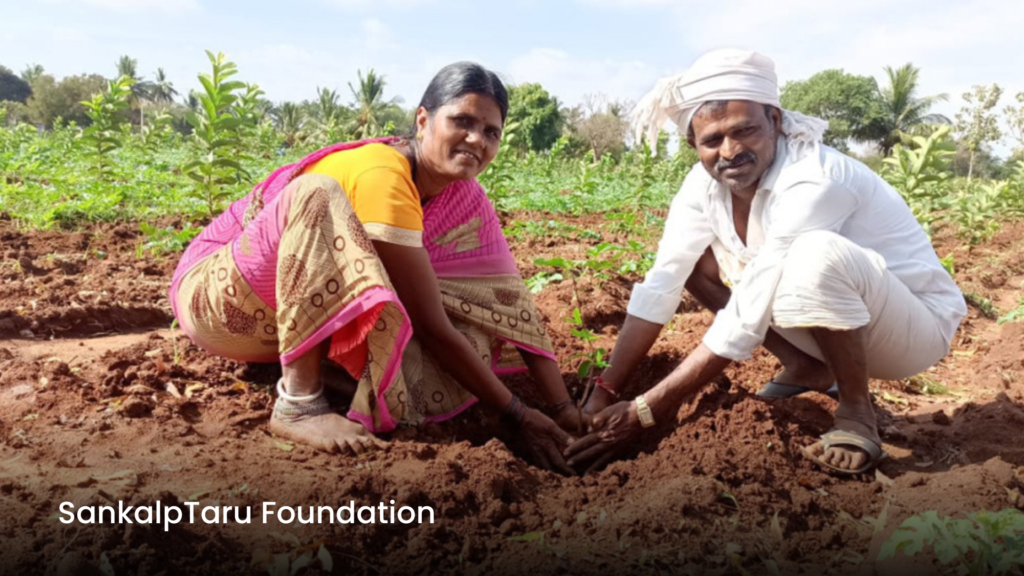
Since its inception in 2013, SankalpTaru has facilitated the planting of millions of trees across India. It has achieved this through an assortment of programmes. These include projects on birthdays, for specific zodiac signs or to celebrate festivals that enable and enthuse people to participate in greening the environment. Online crowdfunding on Give.do, India’s largest fundraising platform, is one of the ways in which it seeks to solicit funds.
Watershed Organisation Trust (WOTR)
Watershed Organisation Trust (WOTR) believes that over the years, unsustainable land and water management have adversely affected the ecosystem in rural India. This has led to deforestation, overgrazing and over-extraction of groundwater. This poses a huge threat to agriculture, causing distress in migration and a loss of biodiversity and ecosystem services. Founded as a water conservation NGO, it aims to mitigate the impact of extreme meteorological events. It seeks to increase productivity, conserve biodiversity, improve the quality of life and stabilise nature-based livelihoods. WOTR has, over the years, diversified its scope of work from watershed development. It is also focused on sustainable agriculture and integrated water resource management.
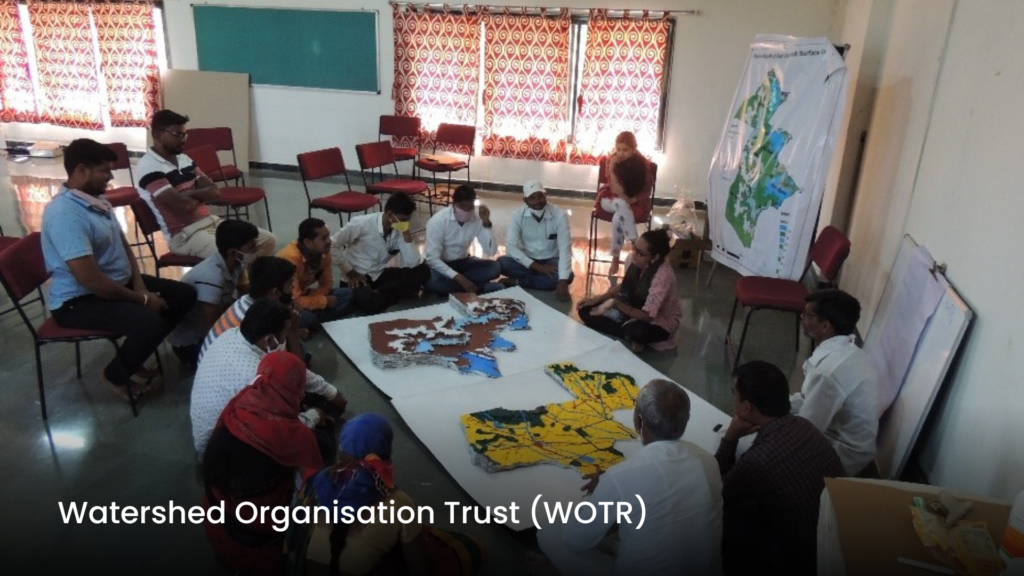
The Trust also strives to develop and strengthen resilience within communities. These include actions to tackle droughts, moisture stress, infrequent and erratic rainfall, extreme precipitation, and pest-induced disease outbreaks. The initiatives on water management, agriculture development and climate change adaptation are yielding results. As part of its water conservation initiative, WOTR has facilitated several projects. These include the construction of check dams and water harvesting structures to enable better drinking water and sanitation facilities. Give has been WOTR’s partner in its efforts to raise funds through online crowdfunding for the environment.
Self Reliant Initiatives through Joint Action (SRIJAN)
SRIJAN works towards the implementation of self-reliant models of rural development at the grass-roots level. It is committed to collaborating with underserved sections of society by promoting community-based institutions. The aim is to engage them in multiple livelihood activities with both backward and forward market linkages. SRIJAN’s primary areas of work include horticulture, water resource management, agriculture, livelihood, dairy and livestock. SRIJAN also focuses on introducing technology and financial literacy to help develop sustainable models of livelihood in rural areas.
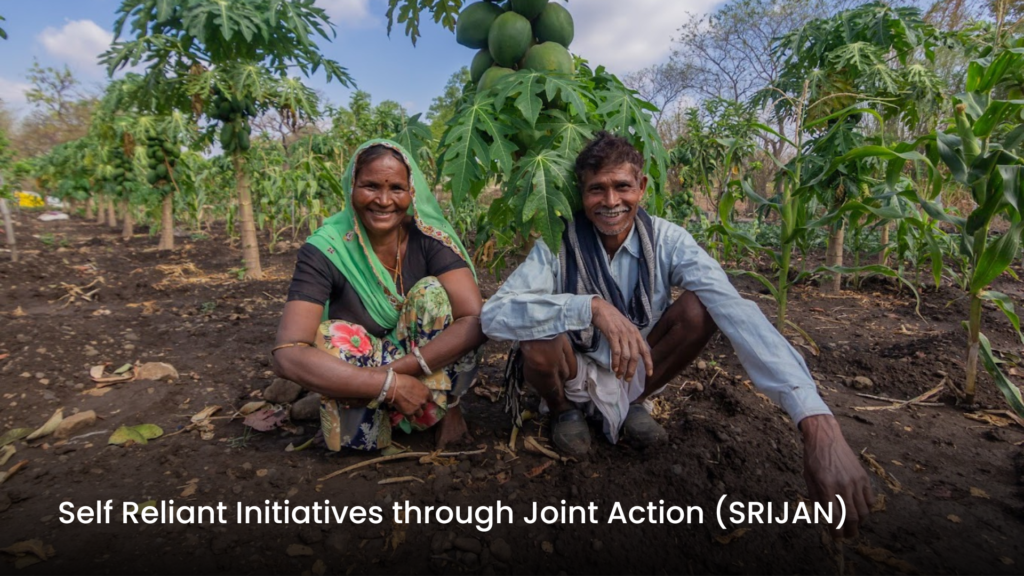
Through its relentless initiatives, SRIJAN has improved the incomes of tens of thousands of rural families in many backward areas. These include several districts in Madhya Pradesh, Rajasthan, Chhattisgarh and Uttar Pradesh. One of its most important water conservation projects is the Bundelkhand Initiative for Water Agriculture and Livelihood (BIWAL). Here, the attempt is to revive traditional water bodies and their surrounding ecosystems through community engagement. According to SRIJAN, over the years, a large number of tanks in the Bundelkhand region have fallen into disuse due to droughts, neglect and apathy. They are silted, encroached upon or are being used for purposes other than water harvesting. The grassroots NGO has launched water harvesting and conservation through various methods including community involvement. SRIJAN can expand its stellar work if the NGO can raise funds through crowdfunding for environmental causes.
Environmentalist Foundation of India
The Environmentalist Foundation of India uses a holistic approach in its water conservation efforts comprising wildlife conservation and habitat restoration. The organisation’s primary focus is on reviving freshwater habitats such as lakes and ponds across India. Based on several studies, the Environmentalist Foundation of India (EFI) has concluded that most of India’s freshwater bodies are contaminated due to human activity, and that their revival and restoration through scientific means are of utmost importance.
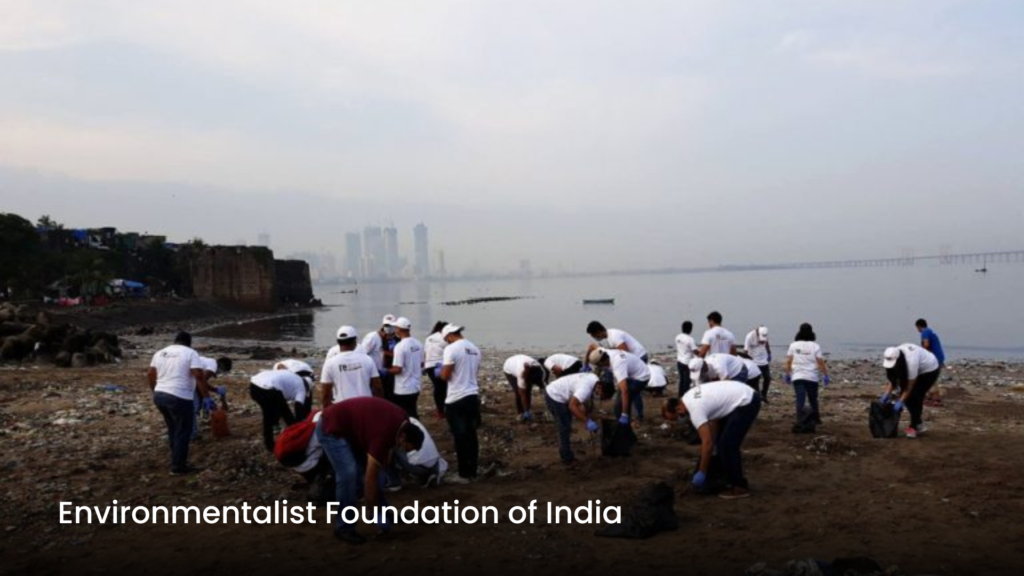
Since its inception in 2007, the NGO has revived several freshwater lakes and ponds in urban as well as rural areas across 14 Indian states. These include Andhra Pradesh, Chhattisgarh, Delhi, Gujarat, the then Jammu & Kashmir, and Karnataka. It aims to revisit the revived freshwater bodies through community-based collaborative conservation efforts. Water conservation efforts by EFI include the restoration of the Kinhi-Gadegaon Reservoir in Maharashtra, Tirunelveli-Keezh Ambur Lake in Tamil Nadu and the Navule Kere in Shivamogga, Karnataka.
Haritika is a non-governmental organisation working in the backward region of Bundelkhand. It works to uplift the lives of the rural poor by implementing multiple environment-related initiatives. The aim is to make communities self-reliant. This firm belief spurs the organisation to work for poverty reduction and improve water availability. Haritika’s interventions include rural electrification through environment-friendly solar energy to fight climate change. It has mobilised villagers and disseminated information on the benefits of solar energy.
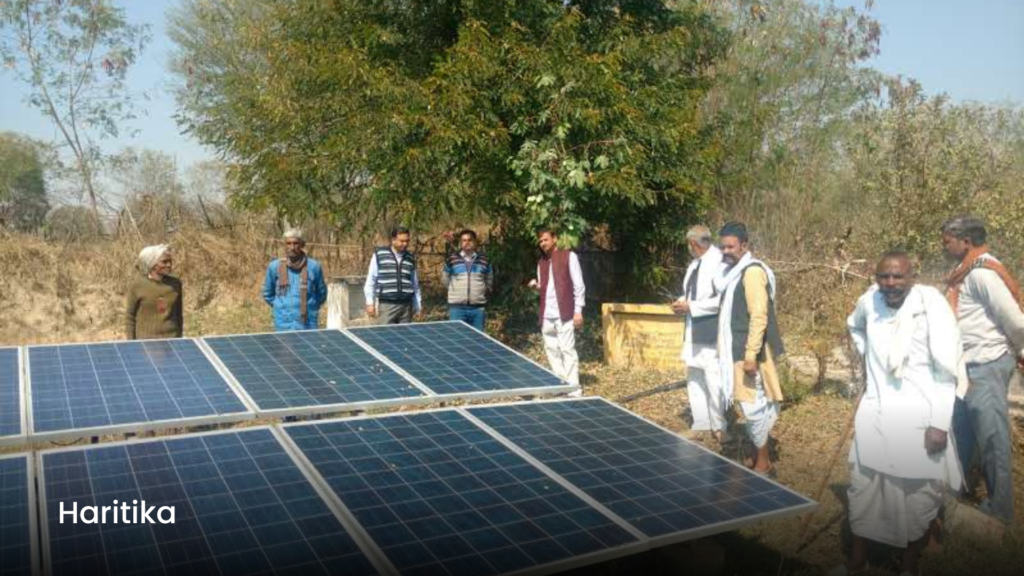
Haritika has also been working with farmers in the region to energise natural water sources. Over-exploitation of groundwater has come down in the region because of Haritika. Since water scarcity is a pressing problem in the region, Haritika is actively involved in watershed development. Natural resources management, water, sanitation and health (WaSH) and generating livelihood opportunities are the focus areas. Haritika also acts to bring together various stakeholders in the local ecosystem to work on improving the standard of living of the socially underprivileged. Online crowdfunding is one of the ways Haritika seeks to raise funds for environmental causes.
This World Soil Day, let’s remember that healthy soil is our legacy to future generations. Every handful of earth contains billions of microorganisms working to sustain life. When we protect soil, we protect ourselves.
By supporting online fundraising efforts by NGOs working for environmental causes, we can show our commitment to environmental protection and conservation on Earth and expand the fight against climate change.
This article was updated in December 2025.
Give.do is the largest and most trusted giving platform in India. Our community of 2.6M+ donors have supported 3,000+ nonprofits, impacting 15M+ lives across India.

Give exists to alleviate poverty by enabling the world to give. Established in 2000, Give, together with its partners, is the largest and most trusted giving platform in India. Give enables individuals and organizations to raise and donate funds conveniently to any cause they care about, with offerings including crowdfunding, corporate giving, cause marketing, and philanthropy consulting. Give’s community of 2.6M+ donors supports 3,000+ verified nonprofits, serving 15M+ people across the country.
Discover more from
Subscribe to get the latest posts sent to your email.

